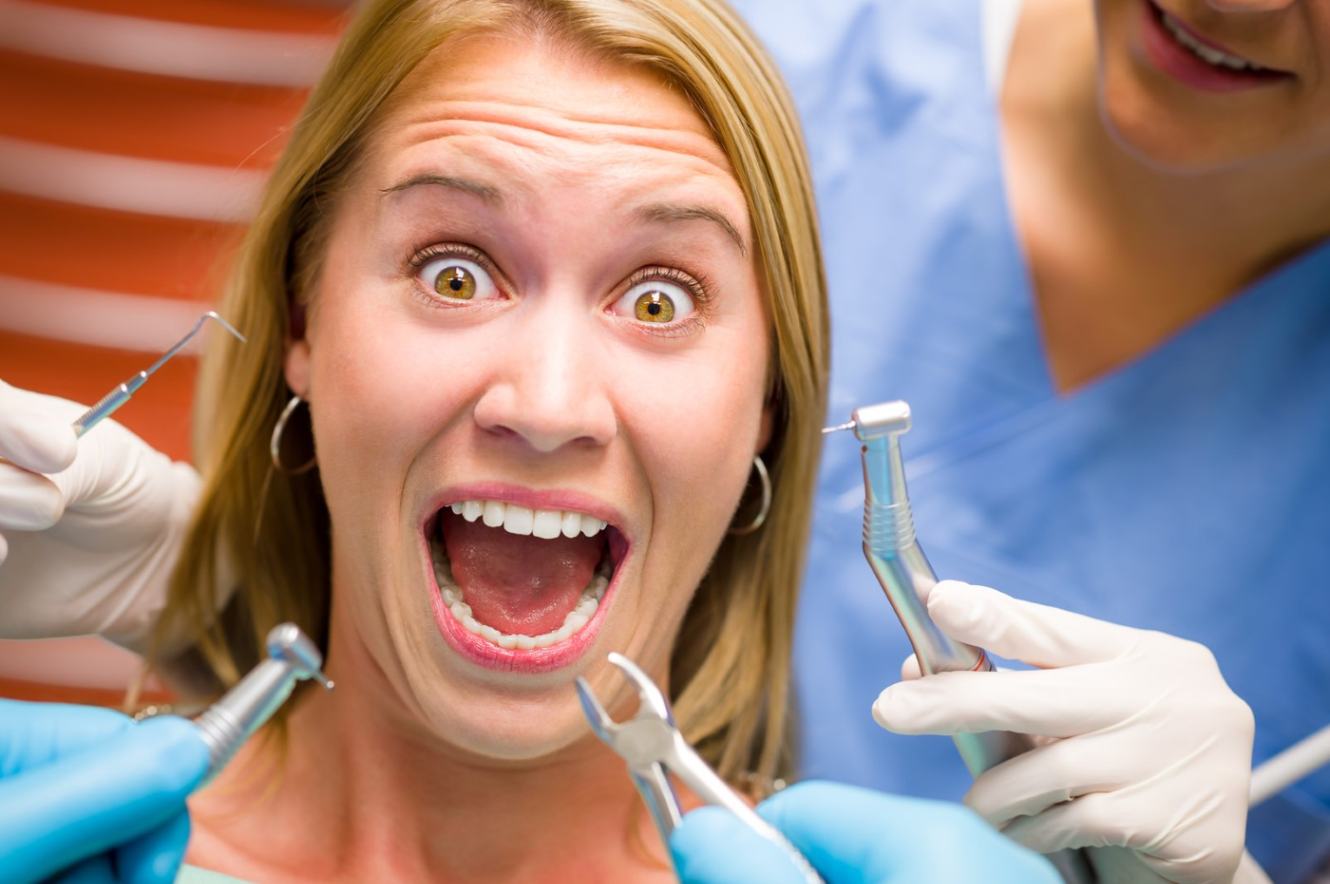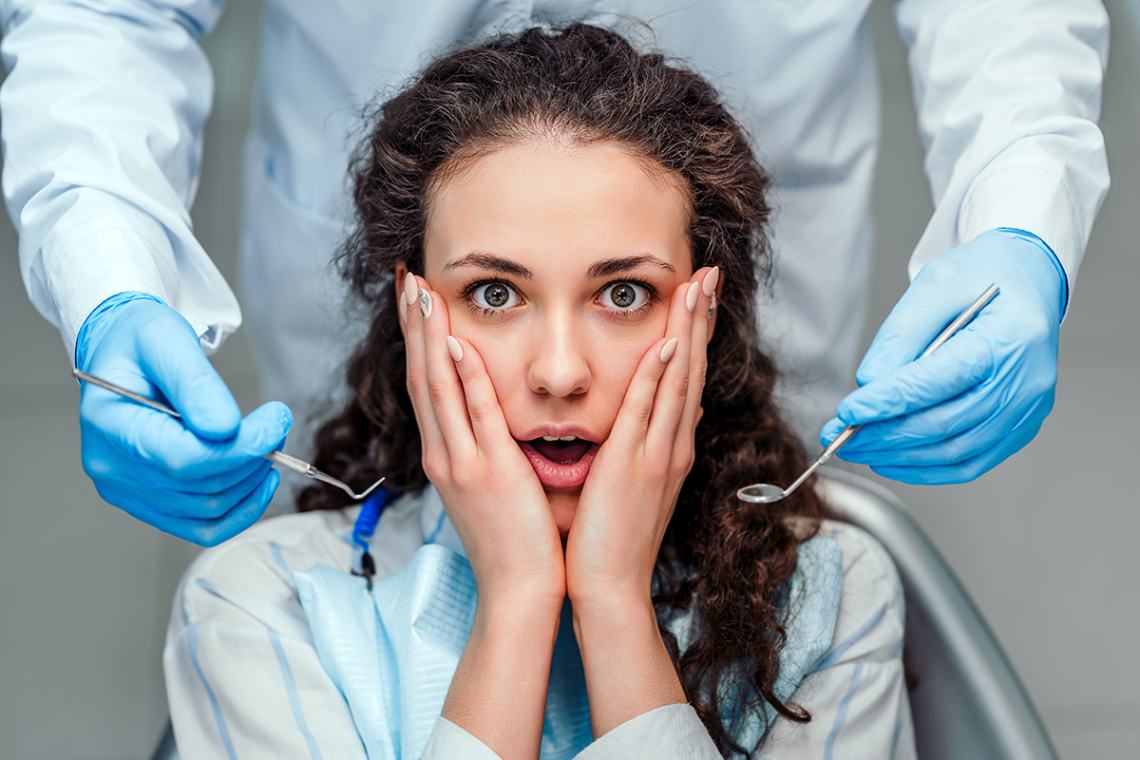When we talk about health, one of the most important types of health care is oral health. Our oral health doesn’t just ensure that our mouth is healthy and clean, but it also has a direct impact on the rest of our body.
Our mouth is the primary gateway to everything entering our body. If it’s not in a healthy condition, then it may become a contributing factor to severe situations like pregnancy complications, pneumonia, and even cardiovascular diseases like endocarditis!
That’s why it’s essential to have regular dental checkups. It sounds normal, right? However, for some people, it isn’t. Yes! Going to the dentist can be the worst nightmare for many people, and it is called dentophobia!
American Psychiatric Association has recognised dentophobia as a disorder that requires proper treatment. Read the blog to understand everything about dentophobia, its causes, symptoms and how to prevent it.
What is Dentophobia?
A phobia is an umbrella term used to define a situation when a person is afraid of a certain situation or anything to an extreme end, and the idea of facing it gives them chills, fear, anxiety or even panic attacks. It can be of different types for different persons.
Similarly, dentophobia is the fear associated with dental procedures or visiting dentists. The mere thought of going to dentists or undergoing any dental procedure causes anxiety, stress and fear, hence making people avoid going to a dentist or any dental procedure.
Difference between Dental Fear and Dentophobia
Dentophobia is often confused with dental fear and used interchangeably; however, both are different.
Dental fear is a mild level of discomfort or fear that may commonly occur at the time of a visit, on seeing an injection, or on hearing about a certain procedure. It can be for a specific event, might be for once or situational. It’s a triggered response to a specific event.
For example, if a person is subjected to an injection, he sees the injection for the first time, and a sense of fear arises in him. After going through it, the fear might go away or not. However, it’s just for a specific event and triggered upon seeing it. The extent of fear is controllable, non-pervasive, and not long-term.
On the other hand, dentophobia is an extreme form of fear that is uncontrollable, long-term, and controlling. It can be strong enough to stop the patient from even entering the clinic or visiting the dentist. It may lead to anxiety, distress, and panic attacks.

The Adverse Effects of Dentophobia
Dentophobia doesn’t directly affect your health. However, since it creates a hindrance in reaching out to your dentist, it may lead to poor oral hygiene, which can lead to other health issues, including:
- Decayed teeth
- Gingivitis
- Tooth loss
- Heart diseases
- Diabetes
- Respiratory issues
- Pneumonia
Symptoms of Dentophobia
Like the other disorders, it has symptoms that can vary from person to person, and the intensity can vary too. The common symptoms include:
- Body tremors
- Abnormal heartbeat and palpitations
- Loss of consciousness
- Upset stomach or indigestion
- Low blood pressure
- Shortness of breath
- Distress
- Crying or anxiety
- Panic attacks
- Excessive sweating
- Chills
- Insomnia at the thought of visiting the dentist
- Nausea
According to research, females have higher chances of having dentophobia, i.e., 4.6%, than males, with an estimated 2.7% of the population.
What Causes Dentophobia?
- Past Experiences: People might have experienced something traumatic in the past or associate a bad memory like bullying or sexual abuse with dental care that may form the shape of a phobia in them.
- Needles: Many people run from needles; that’s why they might develop dentophobia so that they don’t have to face needles during a dental procedure. It is also known as trypanophobia.
- Anaesthetic: The fear of anaesthesia and its side effects on the body may also lead to dentophobia.
- Embarrassment: The fear of embarrassment, wide opening of your mouth in front of the dentist, or the fear of the dentist judging or taunting you for your bad oral health may create hesitation among people, which later on may develop into dentophobia.
- Blood: Seeing blood or even hearing its name may cause people to fear. It is also one of the reasons for dentophobia.
- Smell and Noise: The screeching sound of the dental instruments, the noise and the aroma at the dentist’s clinic can cause severe irritation in many people, causing them to avoid it.
- Family History: Your family history of someone having a phobia or panic disorder may increase the chances of you developing it as well. Gene mutation may also cause people to have more levels of anxiety than others.
Other types of phobia may also lead to dentophobia like:
- Claustrophobia (fear of close spaces)
- Algophobia (fear of pain)
- Emetophobia (fear of vomiting)
- Latrophobia (fear of doctors)
- Haphephobia (fear of being touched)
Dentophobia can be triggered by the thought of being inside the dentist’s office or visiting a dentist, lying in the dentist’s chair, and hearing or seeing dental instruments.

How to prevent Dentophobia?
Dentophobia is a textbook disorder and can be an active cause of bad oral health, leading to other health complications. Hence, it should be appropriately addressed, like other disorders.
Here are a few solutions/treatments to deal with Dentophobia:
- Medications: Medications can be taken as prescribed by your doctor that can help you reduce the anxiety, panic, distress and other physical symptoms associated with dentophobia.
- Sedation: Your dentist may recommend you and give you a suitable dosage of sedatives, considering your overall health conditions before the start of dental procedures. It can help to carry out dental procedures and surgery smoothly.
- Cognitive Behavioral Therapy: This therapy helps you to improve your reactions and make you accustomed by exposing you to dental procedures.
- Psychotherapy: This therapy helps to remove your misconceptions regarding dental procedures so you can combat the fear more nicely.
- Exposure Therapy: It is a type of psychotherapy that helps the patient to get used to the clinic by visiting it regularly so you start feeling comfortable with the environment and dental instruments.
- Communication: Communication is the key when it comes to phobia. Communicate to the concerned doctor or psychologist, especially your dentist, to work and eradicate the issue from its roots.
- Relative Analgesia: The nitrous oxide or laughing gas results in delightful and relaxing sensations among the majority. By inhaling the mixture of oxygen and nitrous oxide, you will sense relaxation and can continue your dental procedure smoothly.
- Relaxing Tips: You may try relaxing things or distractions like music, watching movies, talking, and breathing exercises to conclude your dental session smoothly.
If you are someone afraid of dental procedures, then don’t worry! Our dentists at Cantt Dental Care in Lahore ensure you are comfortable at the start of the appointment. Our state-of-the-art facilities will help you overcome your fears, so stop hesitating and come to our clinic to ensure a healthy oral cavity.
